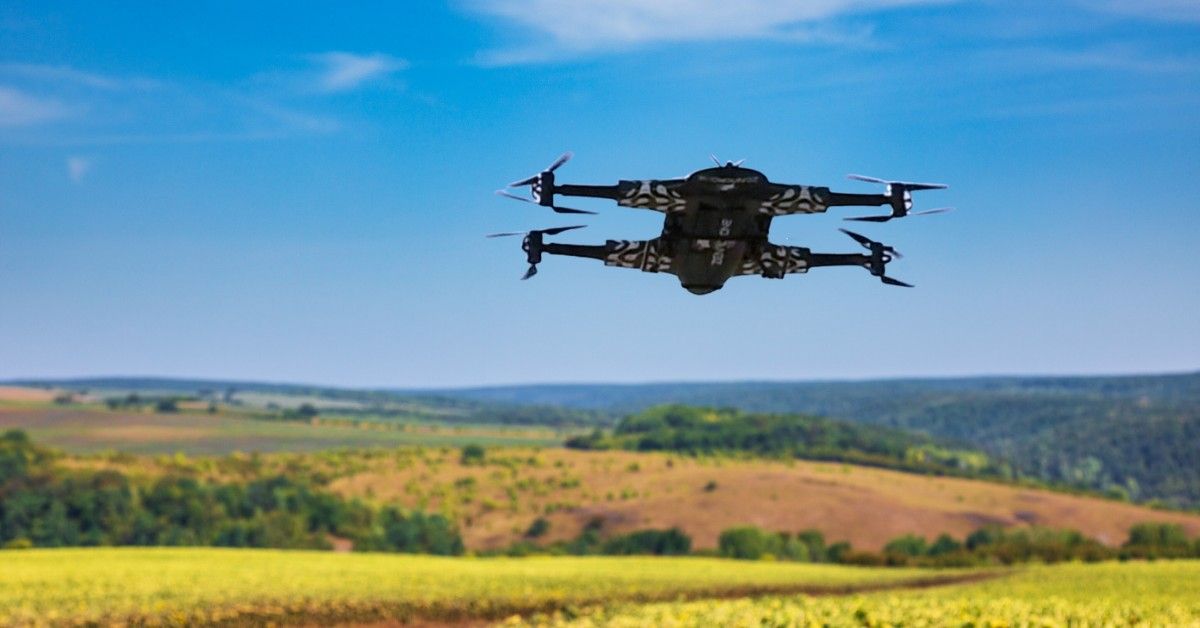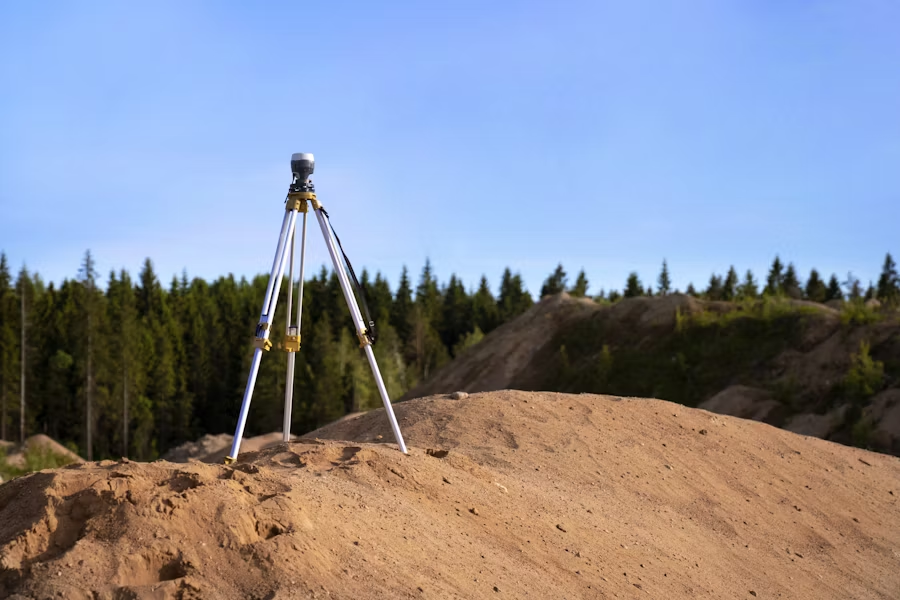Battery Powered vs Gas Powered Drone

Gas-powered drones are changing aerial technology because they can carry larger weights and have longer flight durations. Fuel-powered drones have a longer operating range than electric drones, which makes them ideal for applications including emergency response, construction, and agriculture. They perform well in tasks that need constant operation, like search and rescue missions, supply delivery, and scanning wide areas. Advances in hybrid systems are making gas-powered drones more adaptable and fuel-efficient. Their longevity and capacity to reach far-flung areas make them the perfect option for experts looking for dependable, long-range aerial solutions One of the critical decisions a user must make is whether to opt for a gas-powered drone or a battery-powered alternative. Both types of drones can offer unique advantages in different use cases.
In this article, discover the benefits of both types and see why companies and enthusiasts choose one over the other. Take this comprehensive comparison to understand its various factors, such as power line inspection, flight time, maintenance, environmental impact, and how much help it can bring to any user.
Battery-Powered vs Gas-Powered Drones Key Differences
As both types of power help drones work, the two have their fair share of differences and advantages in different aspects.
Environmental Impact and Operation Efficiency
One significant advantage of battery-powered drones is their minimal environmental impact, contrasting with gas-powered drones. The latter requires burning fossil fuels and carbon dioxide emissions; meanwhile, the battery-powered ones usually support drones that operate with lithium-ion polymer (Lipo), which secures zero emissions. With the continuous rise of companies and industries nowadays, everyone must reduce their carbon footprints. Hence, the one that can maintain environmentally friendly operations is much preferred.
In addition, these battery-powered drones are quieter, which is commendable in operations that require less noise, such as urban environments, wildfire drones, or any events where noise control is vital. Compared to gas-powered drones, these battery-powered ones do not have loud combustion engines, which makes them versatile for different applications.
Power and Flight Time
One of the many advantages of gas-powered drones is their support for extended flight times. These drones may rely on combustion engines that allow them to carry large fuel tanks. That will enable them to stay in the air for several hours, making them ideal for extended operations like surveying prominent places or doing search and rescue operations. However, these benefits come at a cost. Both financial and environmental.
Battery-powered drones are usually known for shorter flight times, even though lithium-polymer (Lipo) battery technology continuously upgrades its capability. Most modern battery-powered drones now offer flight times ranging from 20 to 40 minutes per charge, and those high-end drone products can now even reach an hour of flight time. In addition, some drone batteries highlight their fast charging capacity, allowing those drones to do extended flights. Although a gas-powered drone can outperform a battery-powered drone in terms of endurance, a high-end battery-powered drone can also match its capabilities. Advanced batteries nowadays have already minimized downtime to facilitate convenient swapping and changing. One may carry extra batteries during flight operations, which can be easier than refueling. Thus, in practical application, the battery-powered drone has an edge despite its flight time.
Ease of Use and Simplicity
A battery-powered drone has an edge in terms of usage compared to a gas-powered drone. Batteries are easier to handle in terms of operation and maintenance. As the drone has simple electric motors, it will only need a few moving parts to make them work, reducing the chances of mechanical failure. All of this falls into the battery-powered drones, which are also ideal for beginners and anyone who wants to prioritize reliability and ease of maintenance.
Meanwhile, purchasing a gas-powered drone for sale can be a liability. It can be complex, requiring engine checks, oil changes, and fuel monitoring. All these procedures can take a lot of time and are not comfortable. Hence, battery-powered ones are better for users who want a user-friendly experience. Besides, lowering the need for maintenance also means reducing downtime. That will help the users ensure smooth operations and lessen the chances of interruptions.
Cost Efficiency
Purchasing battery-powered or gas-powered drones for sale must require careful consideration of what is waiting for in future usage. As mentioned earlier, battery-powered ones are usually affordable. A gas-powered drone can ensure more extended operations; however, due to its complex engine design and fuel and maintenance costs, its total cost can be pricey. On the other hand, a battery-powered drone is more straightforward and can eliminate the need for fuel and maintenance costs. One must be wise enough to choose a more extended battery to avoid frequent purchases.
Some businesses might get the gas-powered drone for sale as it can ensure a more extended operation and less hassle for the team, as long as they get the best one. Others can also consider financial allocation, like businesses with smaller budgets or enthusiasts who usually choose battery-powered power as it can be affordable.
Versatility and Uses Fulfilling Various Industry Needs
Battery-powered drones have an edge in versatility and are suitable for various applications. Key features of battery-powered drones include:
- Versatility: Suitable for both smaller and larger models, making them adaptable for multiple industries.
- Ideal for Real Estate and Filmmaking: Their lightweight design, combined with advanced cameras and multispectral sensors, allows for well-detailed footage.
- Comprehensive Coverage: These drones can cover various applications due to their adaptability in size and design.
On the other hand, gas-powered drones offer distinct advantages, including:
Advantages of gas powered drone:
- Heavier Payload Capacity: These drones tend to be larger, allowing them to carry heavier loads.
- Industry-Specific Uses: Industries such as agriculture, construction, and warehouse operations may find gas-powered drones useful for tasks like transporting equipment.
- Limited for Smaller Applications: Due to their size, gas-powered drones may not be ideal for smaller-scale applications.
However, battery-powered drones are still racing to reach the same level as gas-powered drones, as massive drones already work with them. The bigger the battery can even ensure a more extended flight operation. Thus, it is no wonder these drones are continuously growing in the market and upgrading as a technological solution.
Safety Assurance Ensuring Lower Risk
The safety factor is crucial when purchasing or choosing between a battery-powered and gas-powered drone for sale. One must look at reviews and research the known experience using these two types of drones. Take a look at the gas-powered drones. This type is known for its high-powered engines, which means it only operates using fuel that will produce emissions. It is usually complex, meaning mechanical failure may cause a hazard risk. For instance, one will deploy a gas-powered drone in a forest for surveillance and malfunctions during the operation. Chances are it will result in an engine fire that may bring hazardous situations like damaging the vicinity or harming anyone in the area.
Conversely, battery-powered drones are favorably safe, using lower energy input with a more straightforward design. As mentioned earlier, the simpler and fewer the mechanical parts are, the lower the chance of an accident. It is also a plus point that these drones do not rely on flammable fuel. So, during an unfortunate event, this type can still cause risk; however, operators can avoid it, or there is a lesser risk if it malfunctions. It is an ideal choice for operations that concern crowds or hazardous environments like indoor inspection, disaster relief missions, or urban planning projects.
Battery-Powered Drones Shaping the Future
With the continuous evolution of drone technology solutions, it is clear that battery-powered drones are becoming the preferred choice for users across various industries. Gas-powered drones offer advantages, especially in power and extended flight operations. However, one must consider other factors, such as environmental impact, operational costs, and safety. In that case, they are less attractive than a battery-powered drone.
Battery-powered drones highlight their capacity for quieter operation, eco-friendly performance, and lower costs. These factors alone are enough to entice anyone seeking a versatile, reliable, and sustainable aerial solution. Now, for users looking for well-balanced drone performance, the ZenaDrone 1000 is a great option. This drone product highlights its cutting-edge battery technology, which can ensure extended flight operations with superior performance. The drone has high-quality cameras and multispectral sensors that ensure well-detailed imaging and footage. Its components are reliable enough to address different atmospheric concerns. Like any rising battery-powered drone, the ZenaDrone continuously aims to widen its existing support for various industries.
Frequently Asked Questions (FAQs)
1. Why are battery-powered drones better for the environment?
A battery-powered drone produces zero emissions; it only runs through rechargeable batteries instead of burning fossil fuels. No matter how often a user deploys a battery-powered drone, it is still sustainable and eco-friendly.
2. Are gas-powered drones more potent than battery-powered drones?
Yes, it is. Gas-powered drones generally offer more power and extended flight times than regular battery-powered drones. However, these days, battery-powered drone products are also catching up to provide the same level of operation efficiency.
3. Which type of drone is easier to maintain?
If it is about maintenance, the battery-powered ones are easier to maintain since they usually have fewer mechanical parts. Unlike the gas-powered drone, that alone will not require the user to do frequent check-ups.
4. Are battery-powered drones cheaper in the long run?
Yes, battery-powered drones are cost-effective if it is for the long run. It does not need a significant operational cost to make it function.
5. What industries benefit the most from battery-powered drones?
Smaller drones are usually battery-powered. Hence, it is no wonder that industries like real estate, filmmaking, and environmental monitoring benefit from them, as they can ensure quiet operations and reach any space.
Contact Us
Thank you for your message. It has been sent.
Latest Posts
Social Profiles















